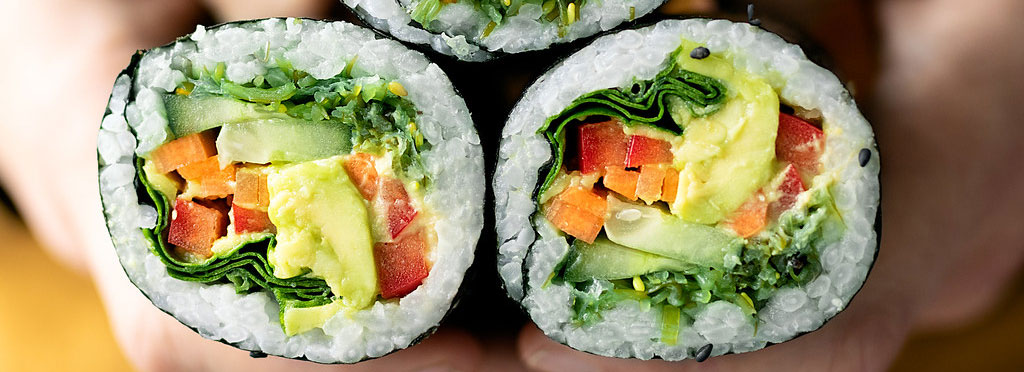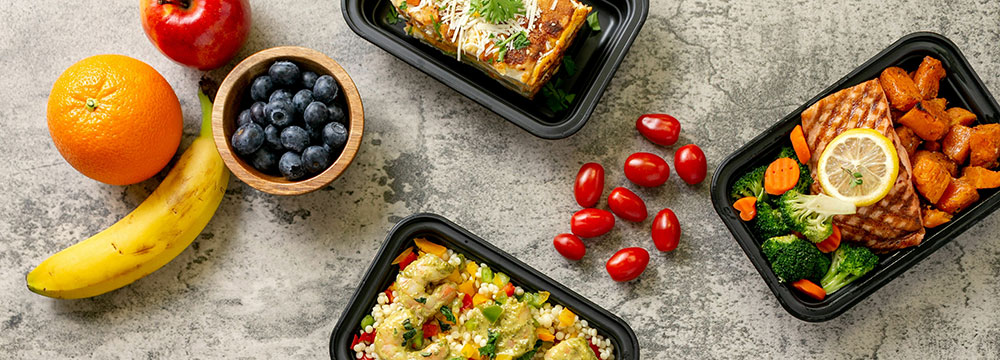- Meal Delivery
Shop by Category
TOP PROVIDERS
POPULAR SEARCHES
Meal Finder Tool

Use our meal finder quiz to find the best meal delivery service for you.
- Vitamin & Supplements
- Deals
- About
- Blog
WellHub tries, tastes and tests products we recommend. When you buy through our links, we may earn a commission. Learn more >
Pescatarian Meals
Pescatarian Meals
There has been a rise in interest in pescatarian diets, not just ethically but nutritionally as well.
We compare Australia’s most popular options for pescatarian meal kits and pescatarian meal delivery availabilities to give you the information needed to make the best choice for you!

By
Rose Fenasse


Rose is a nutritionist who believes nutritional approaches should be flexible and sustainable for the long-term. Rose’s approach to nutrition is evidence-based and integrative, as she understands her scope of practice and sees value in working alongside other health professionals to compliment her clients most effectively. Rose is passionate about ditching diet cultures and focusing on label-free living, whilst educating clients on how to create healthy and flavour-packed meals. She has a comprehensive understanding of shaping nutritional interventions, meal plans, dietary analysis, whilst coaching clients around ditching diet cultures and embracing all foods without the associated emotional fears often seen with dietary changes. Rose stays up to date with current research looking to science and evidence-based nutritional medicine whilst continually studying to broaden her scope.
Updated June 20, 2021
Fact checked
Fully qualified and expert nutritionists have reviewed and checked this content to ensure it is as accurate as possible at the time of writing.
Get personalised meal recommendations
Compare Pescatarian Meals
Advertiser Discolure Advertiser Discolure
Frozen Meals
$30 off your first order! Get Deal
Dietlicious – Pescatarian Meals
Dietlicious is a 100% Australian ready-made meal service creating diet-oriented meals and meal plans. The …
NSW, VIC, ACT, QLD

Frozen Meals
$30 off your first order! Get Deal
Dietlicious is a 100% Australian ready-made meal service creating diet-oriented meals and meal plans. The grab-and-go healthy meals are simply …
NSW, VIC, ACT, QLD
5.0 ![]()
$9.90/serve
Coupon

Dietlicious – Pescatarian Meals
$30 off your first order!
Get $30 off your first order(min spend of $100 excluding delivery).
Copied to clipboard!
What is a pescatarian diet?
Similar to a vegetarian diet, pescatarians eat fruits, vegetables, nuts, seeds, whole grains, beans, pulses and eggs. They avoid meat and poultry, however, they do consume seafood.
There are many benefits associated with eating less meat including environmental. Nutritionally speaking, benefits can often be associated with consequential higher consumption of plant-based foods, may lower cardiovascular health risks such as elevated cholesterol levels or high blood pressure.
Positives in any diet can be drawn when the consumer is encouraged to eat higher volumes of vegetables and fruit as an overall dietary undertone. However, there are often associated nutritional risks to eliminating foods from diets especially when not done under the supervision or guidance of a trusted health professional.

Pescatarian friendly meal delivery kits

At this stage, there are no dedicated pescatarian meal delivery kits on the market. Dietlicious is currently the only delivery service that offers pescatarian meals, however these are ready-made meals.
Meal kit providers QuiteLike, Hello Fresh and Marley Spoon offer a small range of seafood options that you can choose as part of your regular meal kit, but these are not exclusively pescatarian.
Benefits of a pescatarian diet
A pescatarian diet offers a wide range of health and environmental benefits, making it a popular choice for people seeking a more balanced, sustainable way of eating. By focusing on seafood, legumes, vegetables, whole grains, and plant-based fats, while avoiding red and white meat, you can gain many of the benefits associated with both vegetarian and Mediterranean-style diets.
1. Rich in Omega-3 Fatty Acids
Seafood like salmon, sardines, and mackerel are high in omega-3s, essential fats that help reduce inflammation, support heart health, and improve brain function. Regular intake is linked with a lower risk of heart disease and improved cognitive health (Calder, 2017).
2. Supports Heart Health
Numerous studies show that pescatarian diets are associated with reduced blood pressure, lower cholesterol levels, and a decreased risk of cardiovascular disease (Satija, 2016). This is largely due to the combination of healthy fats, fibre, and antioxidant-rich plant foods.
3. Promotes a Healthy Weight
Pescatarian diets tend to be lower in saturated fat and higher in fibre, which supports weight management and metabolic health. The lean protein from fish helps you feel full, maintain muscle mass, and reduce the risk of overeating (Mozaffarian, 2006).
4. Nutrient-Dense and Protein-Rich
Seafood provides high-quality protein, B vitamins, selenium, iodine, and vitamin D, all nutrients that can be more difficult to get from a vegetarian diet alone. This makes pescatarianism a great middle-ground for those looking to boost nutritional intake without relying on red meat.
5. Environmentally Friendly
Compared to meat-heavy diets, pescatarian diets have a significantly lower environmental footprint. Choosing sustainable seafood and plant-based foods reduces greenhouse gas emissions and supports better ocean health (Tilman, 2014).

Pros & Cons of pescatarian meals

Pescatarian Pros
- Seafood is nutrient-dense - Seafood are nutrient-dense protein sources, and often offer a range of valuable nutrients that are missed in meat and poultry options.
- Environmental Benefits - Reducing meat consumption and adopting a pescatarian lifestyle may be of environmental benefit.
- Maintainable dietary choices - A pescatarian diet is less restrictive than a vegetarian or vegan diet. This type of dietary change is sustainable long-term.
- Lots of choices when eating out - There are many options available within restaurants, cafes and delivery services. Those following a pescatarian diet can also trust vegetarian or vegan food options when looking for meals.
Pescatarian Cons
- Planning meals - Eliminating or limiting food groups may require planning especially when organising food prep or meals for the week ahead. You may need to source seafood from a seperate store to where you get your main groceries.
- Can result in nutritional deficiencies - Removing meat from your diet can create health issues such as nutrient deficiencies and create a poor relationship with food when removed without planning or adequate nutritional education. Ensure you consult with a trusted health professional before making any dietary changes.
- Quality and Sustainability - The seafood sourced may not be farmed or caught sustainably.
- Expensive - Seafood can be more expensive than meat and poultry.
Key factors when comparing pescatarian meal delivery companies
When choosing the right option for you, consider the following factors:
100% Meat-Free
As there is not a huge variety of pescatarian meal delivery options on the market at this stage ensure that the menu or recipe you are choosing from does not contain meat throughout the meal despite it being a fish-friendly option.
If the meal says it is pescatarian this will eliminate the need for this step.
Seafood Quality and Source of Origin
Knowing where your seafood is sourced, and its quality is important. Just because it’s from Australia doesn’t automatically make it the best choice, although that is encouraged.
For more information on choosing sustainable and high-quality seafood you can read on goodfish on the guides around sustainable food choices and restaurant guides.
Price
Seafood tends to be more expensive than cuts of meat or poultry options.
As food in meal services are prepared in bulk these preparation standards generally allow for cheaper retail costs, shop around and make sure you aren’t getting the higher end of the deal.
Nutritional Value
Pescatarian diets don’t always equate to healthy
Pescatarian is more of a lifestyle choice than a diet, with any tokenised ‘diet’ or way of eating this doesn’t automatically equate to healthy eating or often associated with weight loss. If you are after weight loss specific meals you need to ensure these meals match your energy requirements and health specifics.
Always check the ingredients and nutritional panels for more details or with a trusted health professional.
Pescatarian Meal Delivery FAQs
There are many protein alternatives to meat sources. In a vegetarian based diet we can protein sources obtained from plant-based protein such as eggs, dairy products, grains, beans, legumes, tofu, tempeh etc.
As pescatarians include seafood sources this makes choosing a little bit broader including; fish, crustaceans (prawns, lobster, crab) and molluscs/bivalves (clams, mussels, oysters, scallops, octopus, squid etc).
At this stage, there aren’t any dedicated pescatarian based boxes in Australia. There are vegetarian options that may be suited to a pescatarian diet without of course the seafood element.
This is quite a common concern for those who consume a lot of seafood, or as the primary protein in their diets. Mercury is a heavy metal that may have consequential health problems with high consumptions especially in vulnerable populations such as children, babies, pregnancy and immunocompromised.
Some fish have higher amounts of mercury than others such as tuna and swordfish. If you have concerns about your mercury consumption, it’s important to check in with a trusted health professional. Some seafood that is low in mercury includes salmon, sardines, mackerel herring, squid, octopus and many more (Food Authority, 2021).
Yes, similar to a vegetarian’s diet meat and poultry are avoided, however, animal products such as dairy and eggs are eaten.
Vegetarians avoid all meat products, poultry and seafood. Whereas a pescatarian avoids meat products and poultry – however still consumes seafood.
Clark et al. (2018) “The Diet, Health, and Environment Trilemma”.
https://www.annualreviews.org/doi/abs/10.1146/annurev-environ-102017-025957
Food Authority (nd). “Mercury and fish”.
https://www.foodauthority.nsw.gov.au/consumer/life-events-and-food/pregnancy/mercury-and-fish
Goodfish (nd). “Australia’s Sustainable Seafood Guide – About Goodfish”.
https://goodfish.org.au/about-the-guide/
GoodFishBadFish (2021). “Sustainable Seafood”.
https://goodfishbadfish.com.au/
Tilman and Clark (2014). “Global diets link environmental sustainability and human health”.
https://www.nature.com/articles/nature13959?source=post_page—————————